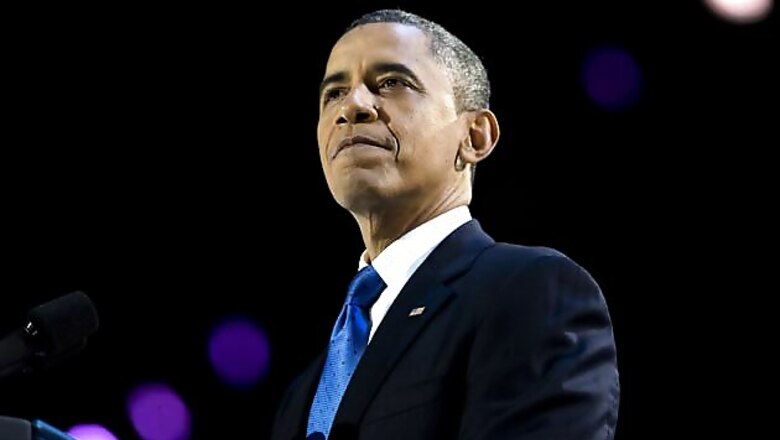
views
The US, on Friday, said it is seeking an "international coalition" for military strikes on Syria over alleged chemical attacks, even as it faced the prospect of unilateral action after the UK rejected involvement in a shock Parliament vote.
A UK government motion calling for a strong humanitarian response which may have included military strikes was rejected by 272 votes to 285 late last night after seven hours of impassioned debate in the House of Commons.
Cameron, who has been aligned with President Obama in advocating a tough response, indicated after the vote that he would abide by the outcome.
The outcome raises serious questions for Obama, who has not yet made a decision on the way forward in Syria but had indicated his administration would need international support for any strike.
After failing to win support for an anti-Assad resolution before the UN Security Council, US officials were looking to allies like Britain and France to build a coalition for action in Syria.
The White House said after the vote that it would continue to assess its options on Syria.
"The US will continue to consult with the UK government, one of our closest Allies and friends. As we've said, President Obama's decision-making will be guided by what is in the best interests of the US," said National Security Council spokesperson Caitlin Hayden.
"He believes that there are core interests at stake for the US and that countries who violate international norms regarding chemical weapons need to be held accountable," he said.
After the vote in UK's Parliament, French President Francois Hollande, said "France wants firm and proportionate action against the Damascus regime."
Hollande in an interview to Le Monde daily said a military strike on Syria could come by Wednesday and the British parliament's rebuff would not influence the course of action that his country would take.
Meanwhile, speaking at a news conference today in Manila, Defense Secretary Chuck Hagel said the Obama administration was consulting with allies to "further develop the facts" about last week's alleged chemical weapons attack.
Hagel said the White House respected the British stance and that it was still seeking an "international coalition that will act together".
"We are continuing to consult with the British as with all of our allies. That consultation includes ways forward together on a response to this chemical weapons attack in Syria," he said.
Germany's foreign minister today ruled out his country's participation in a military strike in Syria.
Guido Westerwelle was quoted as saying by Neue Osnabruecker Zeitung that such a move had "neither been asked nor is it being considered by us".
Cameron, after the shock defeat in Parliament, said "I strongly believe in the need for a tough response to the use of chemical weapons but I also believe in respecting the will of this House of Commons. It is clear to me the British Parliament does not want to see British military action".
"I get that and the government will act accordingly," he said after the shock defeat.
Later, a spokesman for Cameron's Downing Street office said, "Britain will not be involved in any military action". The UN arms experts were to inspect the sites of last week's suspected poisonous gas attacks for a final day before they depart on Saturday and report their findings to UN chief Ban Ki-moon.
Western governments have blamed the Assad's regime for the alleged August 21 chemical attack that claimed hundreds of lives, a charge denied by the Syrian government.
If confirmed, it would be the deadliest use of chemical weapons since Saddam Hussein gassed Iraqi Kurds in 1988.
The British rejection also came after the failure of an eleventh-hour effort by British diplomats to win UN backing for action.
Envoys from the permanent Security Council members, Britain, China, France, Russia and the US, had met at UN headquarters in New York.
The 45-minute meeting was the second since Britain proposed a draft resolution to permit "all necessary measures" to protect Syrian civilians.
Polls in the United States have shown a distaste among Americans for military action in Syria. But Obama and his top advisers, despite the vote in London, were trying to convince Congress of the need to respond, holding a series of briefings as lawmakers increasingly voiced scepticism toward any military strike.
The President yesterday afternoon personally briefed House Speaker John Boehner, who a day earlier wrote to Obama urging him to provide a "clear, unambiguous explanation" on how military action would serve US interests.
The White House also held a major briefing yesterday evening with key lawmakers.
Hagel said yesterday's consultation by the Obama administration with congressional leaders was "not to convince anyone of anything."
He said it was intended as an update and a chance to solicit lawmakers' views on possible US military or other action.



















Comments
0 comment